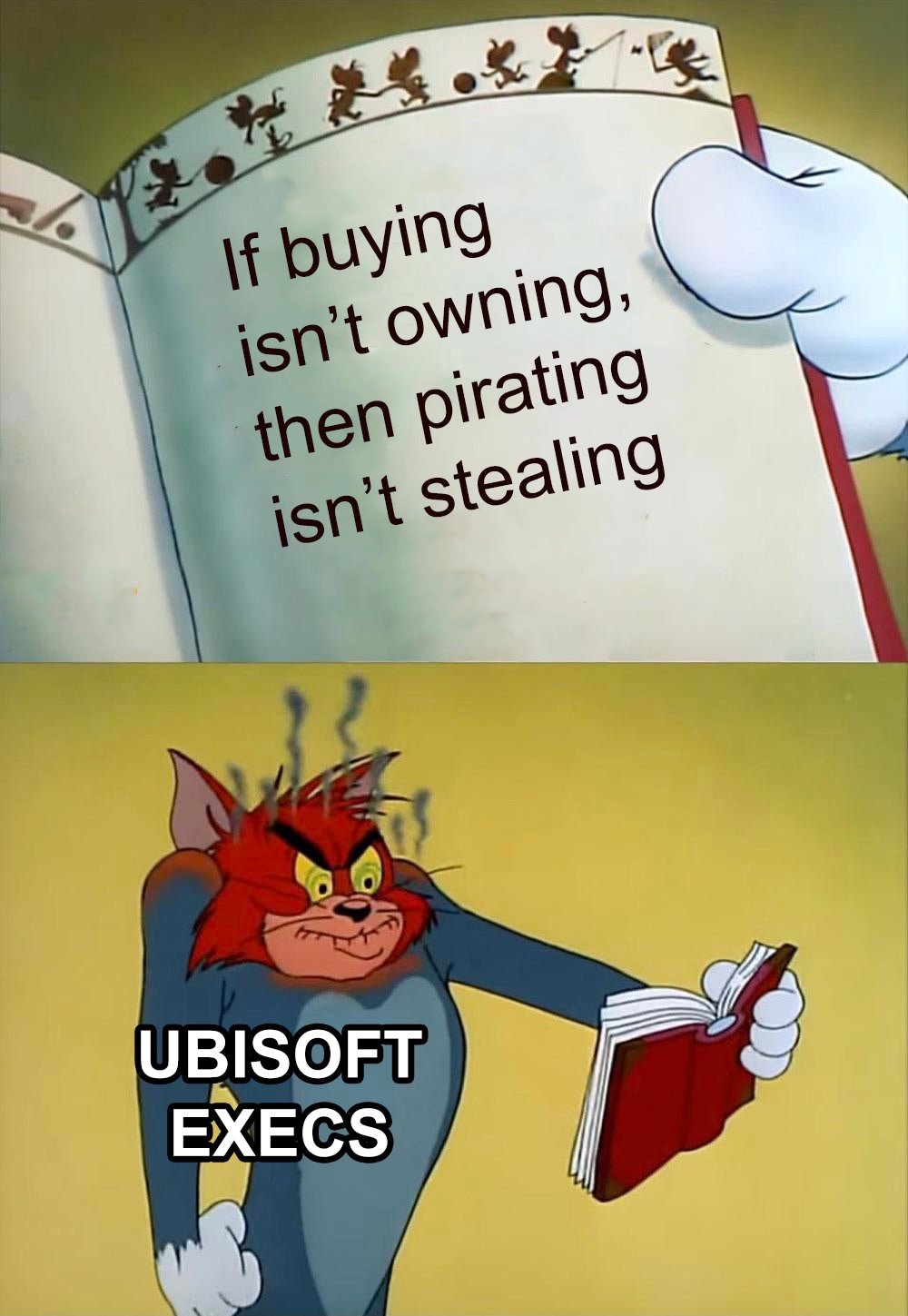this post was submitted on 10 Oct 2024
1224 points (96.5% liked)
memes
11581 readers
3338 users here now
Community rules
1. Be civil
No trolling, bigotry or other insulting / annoying behaviour
2. No politics
This is non-politics community. For political memes please go to [email protected]
3. No recent reposts
Check for reposts when posting a meme, you can only repost after 1 month
4. No bots
No bots without the express approval of the mods or the admins
5. No Spam/Ads
No advertisements or spam. This is an instance rule and the only way to live.
A collection of some classic Lemmy memes for your enjoyment
Sister communities
- [email protected] : Star Trek memes, chat and shitposts
- [email protected] : Lemmy Shitposts, anything and everything goes.
- [email protected] : Linux themed memes
- [email protected] : for those who love comic stories.
founded 2 years ago
MODERATORS
you are viewing a single comment's thread
view the rest of the comments
view the rest of the comments

It never was, only a corrupt judge can reach that conclusion. Stealing is subtracting an item from one person and adding it to another person, if there are two copies of the item then it's not stealing.
What?! Forging money isn't stealing?
Man and I always thought that it is the same as piracy
No, it's Forging.
Money is not an object, it's a concept. Also when you forge money you devalue the whole currency therefore subtracting it from everyone. You could argue that pirating a game devalues it, but then I ask you is the game that you paid for any worse because Joe Schmoe made a copy?
Is the dollar any “worse” because someone copied it?
Or, is its scarcity and trade valuation reduced because someone copied it?
Try living in a third world country that prints hundreds of its own Trillion Dollar bills every week, and see what you think of it.
I still got these Burt Bucks after the crash.
that has nothing to do with games. the value of a game comes from enjoying it, not from trading it away. it can be scarce or abundant. wouldn't change a thing. the analogy doesn't work.
If you're the guy that developed a game, you only get so much enjoyment from playing it - and most of your enjoyment from selling 1,000 copies of it to feed your crippling addiction to novelty PEZ dispensers (and paying rent).
On that note, if an indie developer tries to popularize his niche "aardvark slapping game" by selling it for 10 cents a copy, he might quickly flood the entire limited base of consumers that wants to simulate slapping aardvarks, and only makes $100 in the process. By destroying his game's scarcity, even though he discovered an eager niche, he can no longer sell copies at his original price of $5 each - enough to pay rent for the month. That's how scarcity of a game can be valuable.
You're talking about a product. I'm talking about art. You're arguing that free games have no value. I'm arguing that they do and price has no bearing on the value of an art piece.
I'm arguing no such thing. Artists can, but don't always, choose to be generous with the product they make, just like bakers sometimes give extra loaves to homeless people. Would it be true to say that free food has no value? In either case it's an act of generosity. Bakers and artists can both choose to set whatever valuation/price they want on their work, and can adjust if their chosen price point doesn't make enough sales for their goals. It so happens many artists already have enough money, and simply want people to enjoy their work, or spread their name. The vast majority of artists don't have enough money, hence the sardonic meme of the starving artist.
Forging $1 doesn't remove $1 from everyone else.
If someone forged 80 quintillion dollars, it would remove the usefulness of $1 from everyone else. (and that is in fact the economic fear that’s generated through excess inflation, something that has happened in many countries)
Well, The FED has "forged" 9 trillion USD but apparently that increased the usefulness of everyone's dollars.
It can already not be stealing since that requires the stolen object to be in fact a physical (and a moveable one at that) object. Stealing non-physical property does constitute a crime, but it's not stealing.
Note: this is very specific to your country of origin and may not be true for your country or the applicable law in the case of international crime